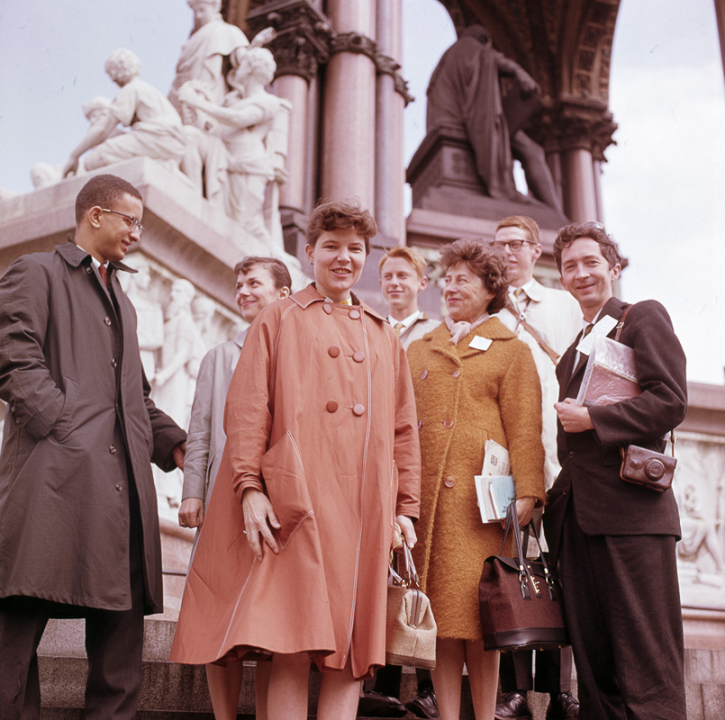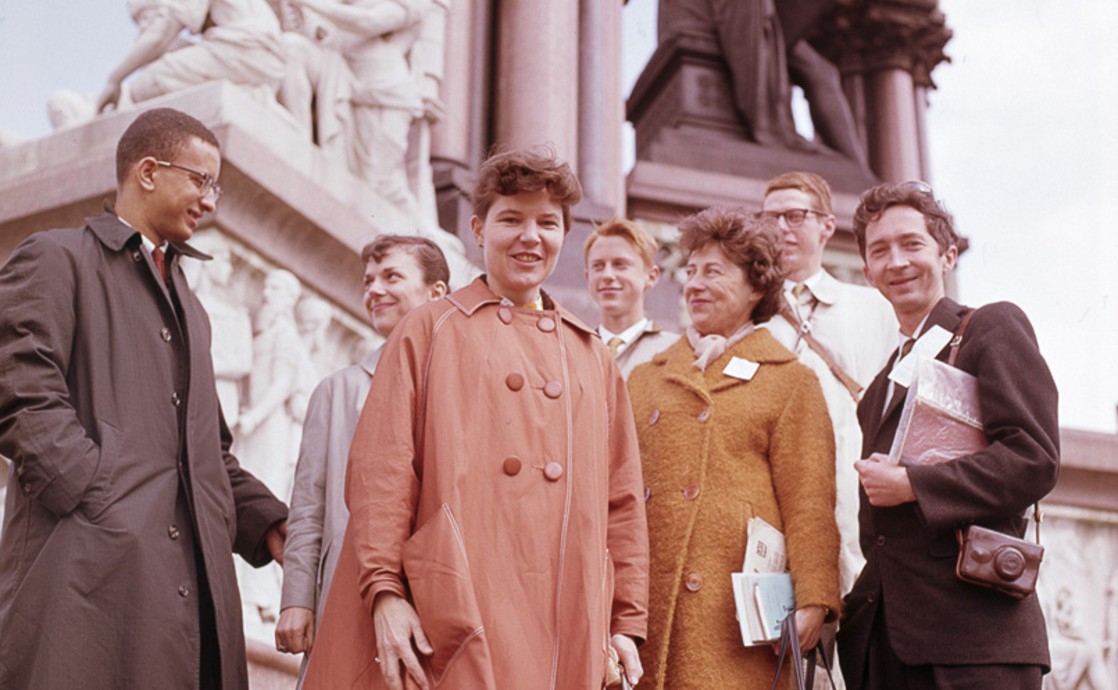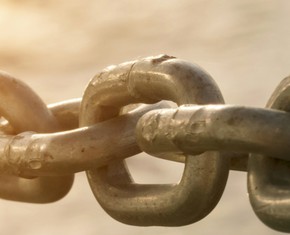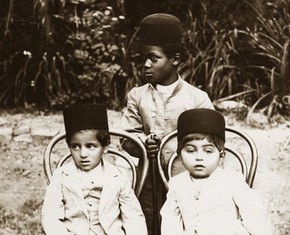The views expressed in our content reflect individual perspectives and do not represent the authoritative views of the Baha'i Faith.
The second Baha’i century began and World War II neared its end in 1944 — and the first second-century Baha’is were born. That generation made a major impact on the fortunes of the Baha’i Faith in the West.
Nineteen years later, in 1963, the first Universal House of Justice was elected by the world’s Baha’is, launching its initial plans for sharing the Baha’i teachings globally. During that period, the Baha’i Faith grew exponentially, fed by the fresh energy of a new and unique generation of youth. In its retrospective of the 20th century called “Century of Light,” the Universal House of Justice wrote:
No segment of the [Baha’i] community made a more energetic or significant contribution to this dramatic process of growth than did Baha’i youth … During the past hundred years our world underwent changes far more profound than any in its preceding history, changes that are, for the most part, little understood by the present generation. These same hundred years saw the Baha’i Cause emerge from obscurity, demonstrating on a global scale the unifying power with which its Divine origin has endowed it. As the century drew to its close, the convergence of these two developments became increasingly apparent.
RELATED: Yamamoto and Fujita: The First Japanese Baha’is

Babies born since 1944 began to come of age in the 1960s, deemed one of the top three decades of spiritual revival in history, because of its huge increase in the range of beliefs and worldviews.
I wanted to preserve the feelings experienced by this generation who became Baha’is during their teens and early twenties — those “second century believers” — who, after their independent searches for truth, accepted the Baha’i Faith. I gathered responses about their feelings and experiences during those unique times, including what attracted them, why they became Baha’is, and why they’ve remained in the Faith.
New trends emerged in the 1960s: environmentalism, second-wave feminism, all brought about by a youth counterculture that aimed to counteract materialism, racism, tradition, and war. In the United States, a youthful President Kennedy brought an energy that inspired the youth, challenging them to contribute to the public good by saying, “Ask not what your country can do for you — ask what you can do for your country.” The U.S. government created the Peace Corps, spurring young people to volunteer to altruistically serve in other countries.
People of color increasingly asserted their rights. In 1963, the African American civil rights leader Reverend Dr. Martin Luther King Jr. delivered to a quarter million pro-civil rights demonstrators a speech envisioning a world where citizens would all live in racial harmony. The American Indian Movement formed in 1968 to support Indigenous people seeking to gain tribal sovereignty. Movements dedicated to freedom, equality, and peace flourished throughout the world.
When I reached out to those who had become Baha’is during that turbulent period in history, the respondents shared these thoughts:
Together with our parents and teachers, we organized public talks and protests. We also lobbied the faculty to create a Black history course.
In my area, the social atmosphere was mostly subtle racism … I was protesting the racism.
Our generation were social activists at a very young age …That was so important to my life. … I was working with the Black Panthers’ food programs before and after I became Baha’i.
Clergy seldom supported the noble protests of Black people about their treatment in America.
International crises arose, such as the United States naval blockade of Cuba because Soviets placed nuclear missiles there aimed at US targets. Future Baha’is were paying attention:
One of my defining moments was during the Cuban missile crisis — we would walk to school wondering where to build our bomb shelters. I wondered why we hated the Russians and decided I would someday go talk to them, so I started studying Russian — our school actually offered it in sixth through twelfth grade.
The decade spawned the war in Vietnam, which ravaged the lives of young American men who were drafted and sent on nebulous missions in chaotic jungle terrain. They returned home with stories of hellish anarchy and suicidal missions, along with a new commitment to oppose war:
… my generation realized we were being used. Americans had always wanted to believe we lived in the most perfect and just country in the history of the planet [which] is what we were constantly told, except by a few protestors popularly labeled fools …
I couldn’t even imagine the horror of anyone that was drafted. There was a very strong sense of dread when becoming draft age. They didn’t even know what they were fighting and dying for. The Vietnam war was a big part of our life.
Respondents lamented how their churches ignored the war and the racism that seemed to be devouring the country. They expressed dismay over clergy who voiced support for the war:
I was dismayed … by the political war support of Christian clergy who seemed not to care about the fate of the young men of my generation … my closest friends had come back deeply wounded mentally and physically.
Many intuited that there must be a pathway to world peace and love, and searched independently, prompted by a feeling that answers would be available:
From when I was around nine or ten years old, I used to walk to my hometown library to check out books attributed to Buddha and Krishna and also Zen thinking, because I felt moved to find out if those writings provided any clues, any wisdom, about life.
RELATED: Forging a Path From Mexico: The First Latino Baha’i Community
Those who searched for answers often objected to the magical thinking they’d encountered in churches, and others felt deeply troubled by religious leaders who couldn’t answer their questions:
I loved Jesus and identified as a Christian, but at seven I was ‘excused’ from my Presbyterian Sunday School after suggesting that if the Magi who visited the infant Jesus were — as our teacher explained — priests of another religion, then God’s truth must have been given other Faiths.
Previously, the Baha’i Faith had been relatively unknown in the United States, and embracing it often seemed like a daring step. Some future Baha’is first heard of the Faith from classmates:
I was taking a World Religion course and it occurred to me that to solve the world’s problems, everyone should have the same religion. Making that statement to about the only person in the enormous cafeteria at the time, I got this reaction: ‘Are you a Baha’i?’ At first, I rejected it outright. When I realized what the implications were that Baha’u’llah was the return of the spirit of Christ, I went ballistic.
Other accounts focused on the mystical aspects of the Baha’i teachings, like this one which describes the effects on a visitor at a Baha’i fireside gathering:
The feeling in that room was powerfully uplifting like nothing I had experienced before. In fact, I experienced that same extraordinary feeling, which I am not certain was the Holy Spirit, over the next few months which convinced me, even more than the beautiful and very logical writings of the Faith, that Baha’u’llah was indeed the Promised return of Jesus.
Many respondents reported experiencing dreams, coincidences, and premonitions that led them to the Baha’i Faith:
… one night, I was just talking to God and saying something like, ‘I wish there was a religion that taught that all of these religions had come from God.’ Literally within a few days of that ‘prayer’, I ran into a Baha’i who spent two or three hours talking to me about his religion.
After this girl learned about the Baha’i Faith at age 14, it changed her behavior so thoroughly that her mother was astonished — and also became a Baha’i:
I’d call [becoming a Baha’i] an awakening … I made drastic changes right away, but it was not pushed on me. I had sought it out … It was like being reborn. I put away pot, etc., became chaste, started listening to my parents. My mom even joined the Faith, after seeing my turnaround.
This man could feel a spirit emanating from a house on the street where a Baha’i fireside was being held:
The Holy Spirit was so tangible that people walked off the street to ask what was going on there. There were 20+ people of all ages and types and colors — hippies, students, working people aged 18-40 — which for me was unusual enough, but the feeling in that room was powerfully uplifting like nothing I had experienced before.
Asked about the reasons for remaining in the Baha’i Faith, this respondent said:
… the Holy Spirit, which the [Baha’i] writings make easier to bring to mind, is the most convincing and powerful proof of the validity of faith in God, in this and in all of the inspired dispensations of His prophets.
When these children of the 1960s encountered the Baha’i teachings, the social upheaval going on around them compelled further investigation — and the Baha’i Faith expanded rapidly.
You May Also Like
Comments

















By the way, I joined the Faith right after the World Congress in London. I can't tell you how many slide shows I saw of that event! I pledged to myself that if we ever had another one, I would be there by hook or by crook. Not only did we go, but my husband and I played in the World Congress Orchestra and my daughter sang in the choir! Who knew when I first joined that I would ever ...have such an AMAZING experience?!
There's not enough space here for me to tell most of my story. But my over 6 decades in the Faith have been meaningful and full of interesting events. I wish we could have ...a renaissance of those times now. Seems to me, the world certainly needs such a thing. Thank you so much for recounting our times. Your article brought back some great memories!
There's not enough space here for me to tell most of my story. But my over 6 decades in the Faith have been meaningful and full of interesting events. I wish we could have ...a renaissance of those times now. Seems to me, the world certainly needs such a thing. Thank you so much for recounting our times. Your article brought back some great memories!
The Comments here won't allow me to tell most of my story. But my over 6 decades in the Faith have been meaningful and full of interesting events. I wish we could have a ...renaissance of those times now. Seems to me, the world certainly needs such a thing. Thank you so much for telling us about our times. Your article brought back some great memories!
The Comments here won't allow me to tell most of my story. But my over 6 decades in the Faith have been meaningful and full of interesting events. I wish we could have a ...renaissance of those times now. Seems to me, the world certainly needs such a thing. Thank you so much for telling us about our times. Your article brought back some great memories!
By the way, I joined the Faith right after the World Congress in London. I can't tell you how many slide shows I saw of that event! I pledged to myself that if we ever had another one, I would be there by hook or by crook. Not only did we go, but my husband and I played in the World Congress Orchestra and my daughter sang in the choir! Who knew when I first joined that I would ever ...have such an AMAZING experience?!